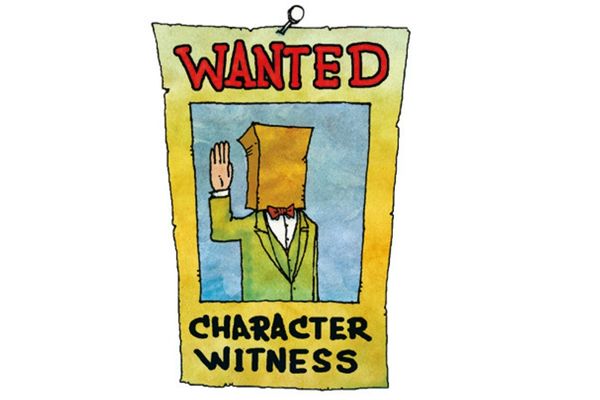Witness for Dubious Character
May 01, 2019
Ethical Educator
Scenario:

The superintendent of a small school district is approached by a neighbor whom he has known for about 10 years. The neighbor, 54, says he was recently convicted of unlawful contact with a minor, a felony, in a case that involved sexually touching an 11-year-old boy through his clothes.
This happened in a community in a bordering state where the neighbor was working at a university. He asks the superintendent to serve as a character witness at his upcoming sentencing.
After obtaining support from his school board, the superintendent agrees, saying he doesn’t condone the behavior “but feel that it was my obligation to offer what I knew of him so the judge could make the very best decision he could.”
Did the superintendent compromise his leadership duty?
Maggie Lopez:
The superintendent’s role is first and foremost to be a steward for children and therefore his responsibility must first be to his students, not his neighbor. No matter how he justifies his support of his neighbor, the superintendent’s actions are contrary to his leadership role, duties and responsibilities. He is a public servant to students, families and his school community.
He will compromise his leadership role and duties by testifying. His actions, regardless of his intent, will send a message that he can look beyond the neighbor’s abhorrent behavior and still offer him support. He has no obligation to be a character witness for his neighbor when the individual has violated a child and has demonstrated the lowest level of character.
Additionally, the superintendent should not have put the school board in a situation where they had to respond to this request. This is poor judgement on the part of the superintendent. Aside from the ethical message the superintendent will send by serving as a character witness and the fallout it will have for the district, the superintendent should have considered the hurtful message this will send to students and families who have experienced similar trauma. This should have been what he considered first, not his neighbor’s needs!
Max McGee:
If he hasn’t done so already, the superintendent should update his resume. While he may have obtained board support in closed session or through individual conversations with members, there was not a board vote. Without a public vote, it is highly unlikely board members — much less teachers, parents or students — will stand by a leader who is publicly supporting a convicted child sex offender at a sentencing hearing.
Cases like this are always high profile in the media, and the fact the superintendent will speak in support of the felon’s character — a character that led him to touch a child of elementary school age — will likely receive significant media attention. The term “guilt by association” may be an unfortunate perception, but in public life the adage “perception is reality” is all too true so in the public eye, the superintendent will thus be guilty of supporting a felon who will undoubtedly face jail time for sexual contact with an 11-year-old boy. Actions matter more than words, and his support will be perceived as de facto condoning of his neighbor’s felonious actions.
While one may applaud the superintendent’s commitment to being a good neighbor, a superintendent must put the best interest of children first. By being a character witness, he has not just compromised his leadership duty, but sadly, he has deprived children, families, teachers, staff and other stakeholders of all the good he can bring to the district and community.
Meira Levinson:
No, the superintendent did not compromise his leadership duty because he obtained support from his school board, confined his testimony to factual information that could inform a judge’s decision about sentencing and clearly condemned the behavior for which his neighbor was convicted.
I am sure the superintendent wishes he never was put in this situation. No superintendent goes around seeking the opportunity to testify on behalf of those who have been convicted (or even accused) of criminally touching children. There is also the risk that parents and students themselves will take offense at the superintendent’s willingness to serve as a character witness for any convicted felon, let alone one who took advantage of a minor. But these risks should be balanced against other considerations, including the superintendent’s decade-long relationship with the neighbor and the judge’s capacity to distinguish character description from character endorsement.
Given the risk, nonetheless, that the superintendent may well be vilified for serving as a character witness, he also should have ensured that the board provide him written, not just oral, support.
Shelley Berman:
In agreeing to provide a character reference for a convicted sex offender of a minor, the superintendent made a serious error in judgment. A superintendent must place the interest of children first, and his top priority must be to promote their safety. Even though the superintendent does not condone the neighbor’s behavior, defending the general character of a child sex offender makes a powerful statement to the community that he does not regard acts of this nature as serious violations of the safety and wellbeing of children. As a result, his testimony compromises both the confidence the community has in him and his responsibility as a district leader to put children’s safety first.
The superintendent may know the person well as a neighbor. However, he may be unfamiliar with other aspects of this individual’s character or background. He also may not know the exact circumstances leading to the conviction. That this act resulted in a felony conviction indicates the seriousness of the incident.
The individual’s neighborliness does not mitigate his sexual violation of a child and does not justify a character reference from a superintendent. The superintendent should have respectfully declined to provide a reference, telling the neighbor it would not be appropriate given his position and his lack of direct knowledge of the incident.
Each month, School Administrator draws on actual circumstances to raise an ethical decision-making dilemma in K-12 education. Our distinguished panelists provide their own resolutions to each dilemma. Do you have a suggestion for a dilemma to be considered? Send it to: magazine@aasa.org.
The Ethical Educator panel consists of
- Shelley Berman, superintendent, Andover, Mass.;
- Meira Levinson, professor of education, Harvard University, and author of Dilemmas of Educational Ethics: Cases and Commentaries;
- Maggie Lopez, retired superintendent in Colorado Springs, Colo.; and
- Glenn "Max" McGee, a former superintendent and regional president of ECRA Group in Schaumburg, Ill.
Advertisement
Advertisement
Advertisement
Advertisement

.png?sfvrsn=3d584f2d_3)

